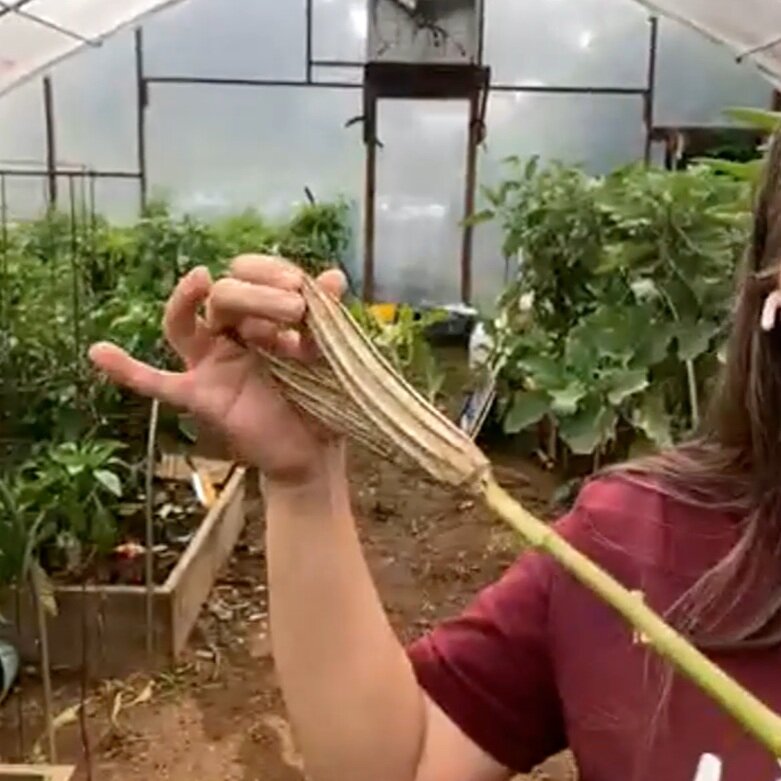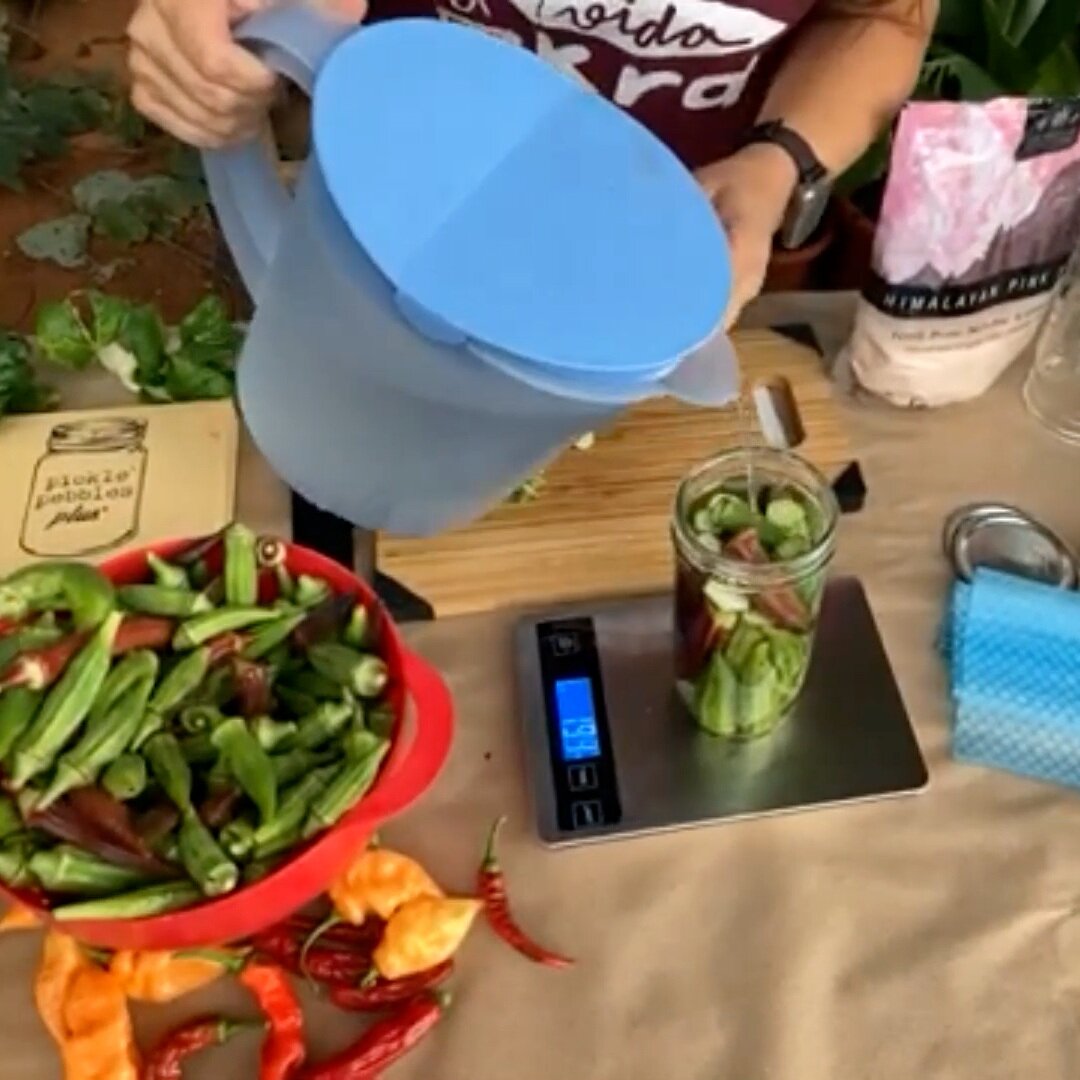By Kimberly Koogler
Kimberly Koogler is the Farm to School Coordinator at Georgia Organics.
To kick off our Wednesday Webinar series for October Farm to School Month last week, Brooke Lewis-Slamkova, a Family and Consumer Sciences Teacher at Barrow County Schools and a farmer at Maple Park Homestead showed us her farm and how to pickle okra using lacto-fermentation.
Read more below, and check out the recording of this workshop here to learn more about the process of lacto-fermentation and the exact steps to take to make some tasty, gut-friendly pickles!
We began by taking a virtual walk around her farm, starting in the high tunnel and ending up at the barn (seen above).
Under the cover of the barn, Brooke reviewed with us the importance of good handwashing practices, followed by the importance of using and teaching knife safety skills and techniques.
She demonstrated those knife skills while preparing a bunch of beautiful, locally grown okra for their saltwater soak and telling us the simple secrets behind lacto-fermentation.
In case you missed it, here are some key takeaways:
Teach your students proper knife skills from the get go! Use the kids-safe plastic knives for younger students. (Here’s an example of one we like to use at Georgia Organics.)
Learn and teach the pinch grip!
Get yourself and your students in the mindset and habit of the bear claw!
Tip: stick a damp paper towel under your cutting mat to keep it from slipping.
Fermentation—it doesn’t have to be scary!
All you need:
Jars with lids (can be used jars, just run through sanitizing treatment in dishwasher or sanitize with boiling water)
Non-chlorinated water: spring water is best or well water
Salt (not iodized)- Himalayan is good, kosher, or sea salt
Lactobacillus bacteria are super common, very safe, on almost everything, and they can thrive in a salted environment.
The amount of salt you need for this kind of pickling is about 2.5% of the volume of your combined vegetables and water.
In teaching students the life skill of preserving food via lactobacillus fermentation, you have the opportunity to also teach about mass, volume, physical and chemical changes, how to use a scale, math, history, and culture (in more than one sense). How’s that for a comprehensive farm to school lesson?!
Check out the recording of this workshop here to learn more about the process of lacto-fermentation and the exact steps to take to make some tasty, gut-friendly pickles.
Also, check out this middle and high school level farm to school STEM activity sheet that Brooke created, which also includes the recipe for these lacto-fermented okra pickles!
Next in our webinar series line-up on October 13 is The Secret Succotash Society, presented by Chef Asata Reid and UGA Extension Agent, Terri Carter. You don't want to miss this one!
To see all of our upcoming Good Food for Thought events, visit gfft.georgiaorganics.org/virtual-events.
To learn more about and sign up for Livin’ la Vida Okra visit bit.ly/livinlavidaokra.
To learn more about Georgia Organics, visit georgiaorganics.org, and follow us on social media @GeorgiaOrganics and at facebook.com/GeorgiaOrganics.





